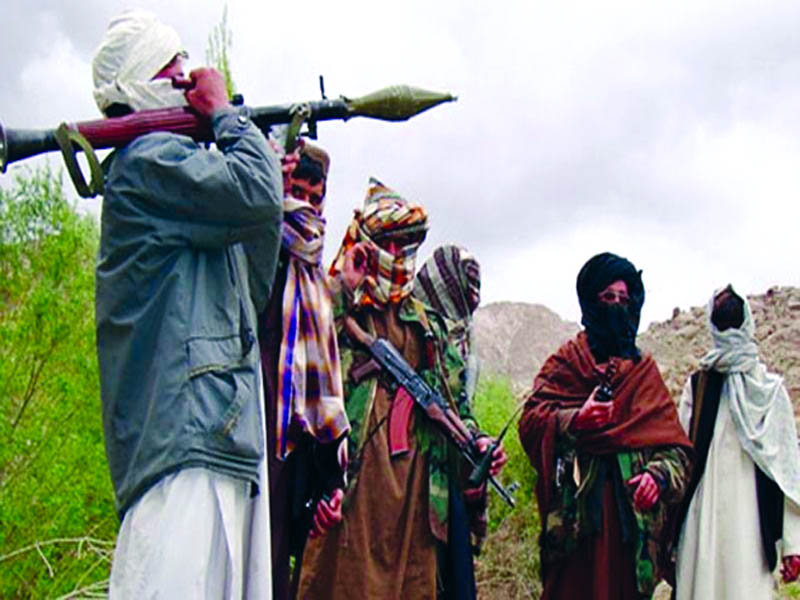The purpose of terrorism is to create an state of extreme fear among target groups to alter their behaviour and bring about a radical change
The recent attacks by terrorists in Rajouri that killed 4 soldiers and a few days earlier ambushed an Army vehicle in the Poonch district of Jammu and Kashmir in which 5 Army Soldiers have been martyred ahead of G 20 meeting have confirmed that terrorists were down but not wiped out. The purpose of these attacks is to destabilize security and create a vulnerable atmosphere in the region. This is not an isolated incident but just an addition to the long saga of terrorist violence in the region. Earlier the series of terrorist attacks in Sopore, Budgam, Chadoora, Noorbagh and Dooru Shahabad raised serious concerns for security agencies.
Both the Central and State Governments have done an excellent job to resolve the issues but terrorists are deliberately creating problems as they work to the tune of outsiders. Besides, to a large extent, clinging to terrorism provides livelihood to terrorists who have nothing to lose except their lives for some money and self-generated fake popularity among their masters as a bonus. Be it the case of Ajmal Kasab and a few others who were misled and driven to commit a most heinous crime in Mumbai. Although the central government has made efforts to find a solution to the problem plaguing the region by initiating talks with Pakistan and addressing the grievances of the separatists yet insurgent activities against the government and clashes between terrorists and the Army have continued unabated.
The region provides an excellent base for the rebels to carry out guerrilla activities. Several security officials have died in controlling the terrorist onslaught for many years. World over, the new breed of terrorists seems to be reasonably confident of their access to vantage points. Moreover, their strategies have become more sophisticated and they are successful in acquiring more lethal weapons from across the border. The rapid international transportation and use of sophisticated weapons like assault rifles and plastic explosives (RDX) have helped to facilitate the expansion of terrorist networks around the world. Besides, the new suicide squads of terrorists have left the entire security apparatus of the affected states in a state of shock.
The recent incidents in Europe and Asia and Africa need to be understood properly. History bears testimony to various such tragic events.
Mr. Alison Jamieson, a British analyst on organized crime and political violence commented that the distinction between terrorism and organized crime has become very blurred recently. Italian organised crime expert Professor Ernesto says “The goal is different.
The terrorist’s goal is an ideological one, while organized crime’s goal is financial, but the instrument is the same. They both need money and arms”. In Sri Lanka, the Tamil Tigers engage in drug trafficking to finance their struggle, in north-eastern India guerrillas kidnap tea planters and hold them to ransom to help fund their fight for independence. In Chechnya, the secessionists were heavily involved in drug distribution. These days terrorists are more confident than ever before of their access to vulnerable points before carrying out any of their attacks and they plan their attack in a heroic manner for the justification and fulfilment of a cause that they think is just.
Thus, they attempt, by their acts, to inspire and manipulate fear to achieve a variety of purposes. William Henry once explained the problem of international terrorism and commented that “some politically motivated acts are rooted so deeply in dedication to a cause that no sanction can deter them, other acts of terrorism spring from frustration of legitimate means, caused in turn by acts of government repression and terrorism.” It is basically a self-created perception of misled people to give an ideological fervour to their misdeeds. Terrorist groups are generally too small and weak to operate successfully against governments.
Therefore, violence is not their immediate goal and that’s why they insist upon psychological rather than practical results.
The purpose of terrorism, therefore, is to create an emotional state of extreme fear among specific groups, and thereby, ultimately alter their behavior and bring about general or particular changes in the structure of society and government. Therefore, scholars working on strategic affairs in the international arena need to examine and analyze the genesis and changing nature of the problem of international terrorism and its causes. It is true that present anti-terrorism laws such as extradition treaties, etc are sufficient enough in handling the problem provided they are implemented promptly and effectively. Besides, Intelligence, Interception and close surveillance are the most effective ways of combating modern terrorism. In this regard the following suggestions may be worth considering:
(a) Carefully examining important incidents and preparing detailed action-oriented reports on terrorist-affected areas.
(b) Building a sophisticated communication network as part of a wider modernization drive that gives access to the latest technology.
(c) Better management of local contacts and sources of assistance. #developing new techniques of security and maintenance of secrecy.
(d) Developing the capability to anticipate security needs. This is possible by conducting specialized courses for monitoring security situations
Although individual countermeasures have been taken against terrorism, the world is not yet in a position to completely eliminate this curse of human civilization. The important task is to find out the emerging new cause of terrorism or analyze the psychology.
The efforts of the state to maintain security in the face of terrorist threats should go hand in hand with a new international mechanism bolstered by a multidimensional and multilayered approach based on coordination and intelligence sharing. The world has got tremendous opportunities and excellent platforms such as G 20 and Quad wherein a lot of sharing and learning can generate a solid combating mechanism.
(The writer is the recipient of the Bharat Gaurav Award. He is a Professor and an Expert on Strategic Affairs. Views expressed are personal)





















